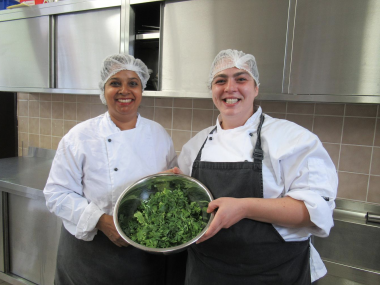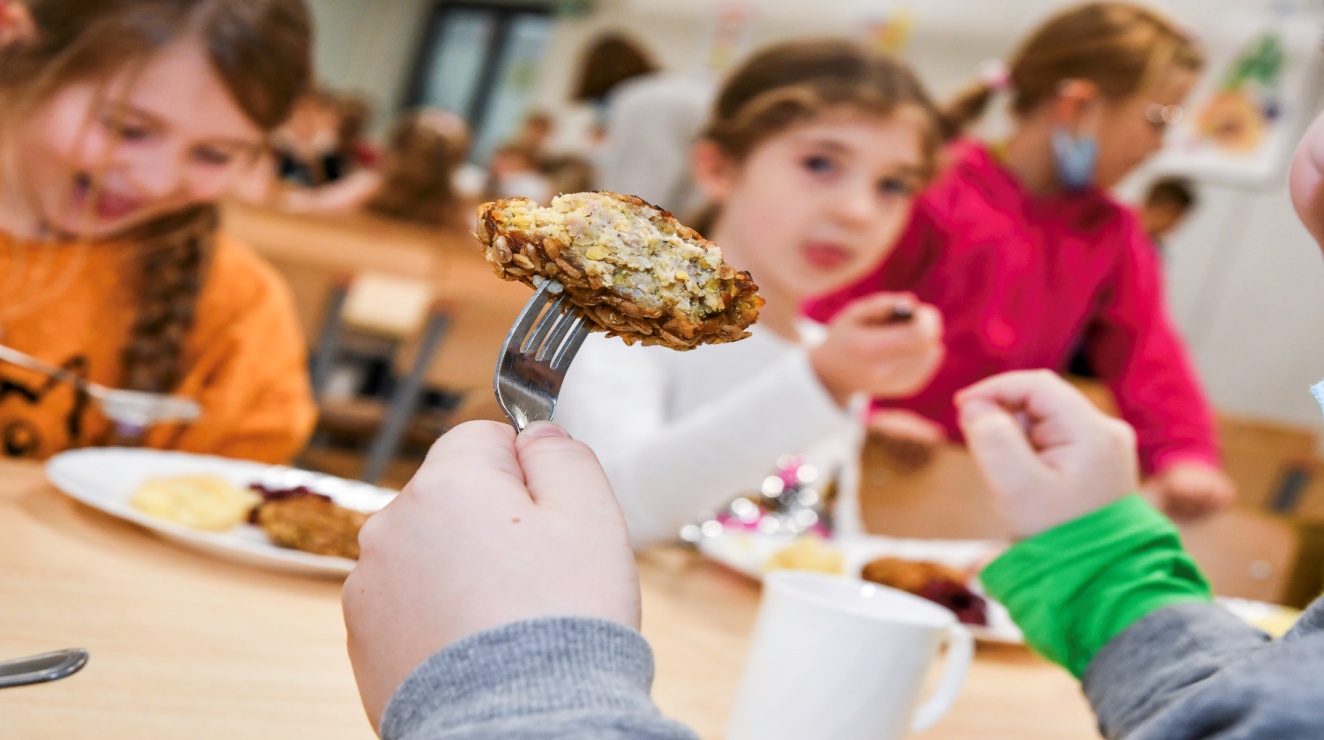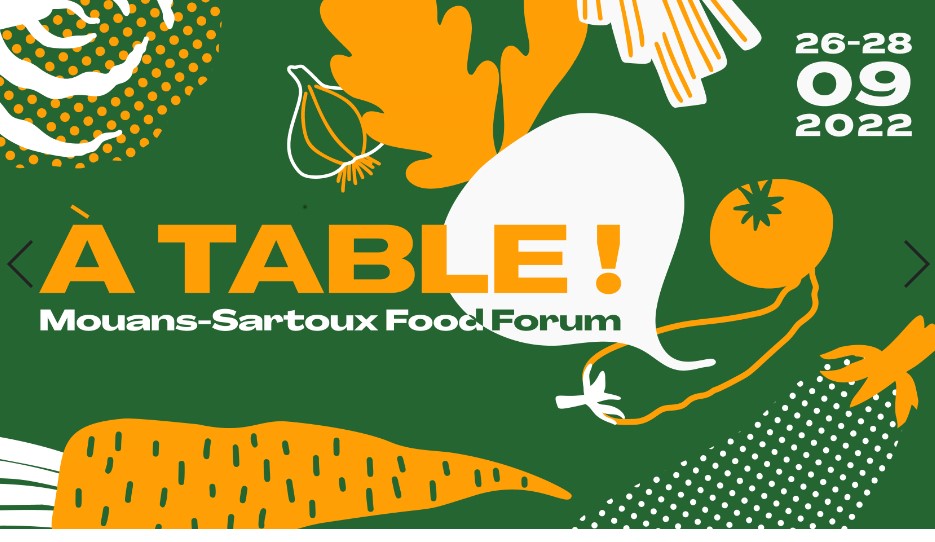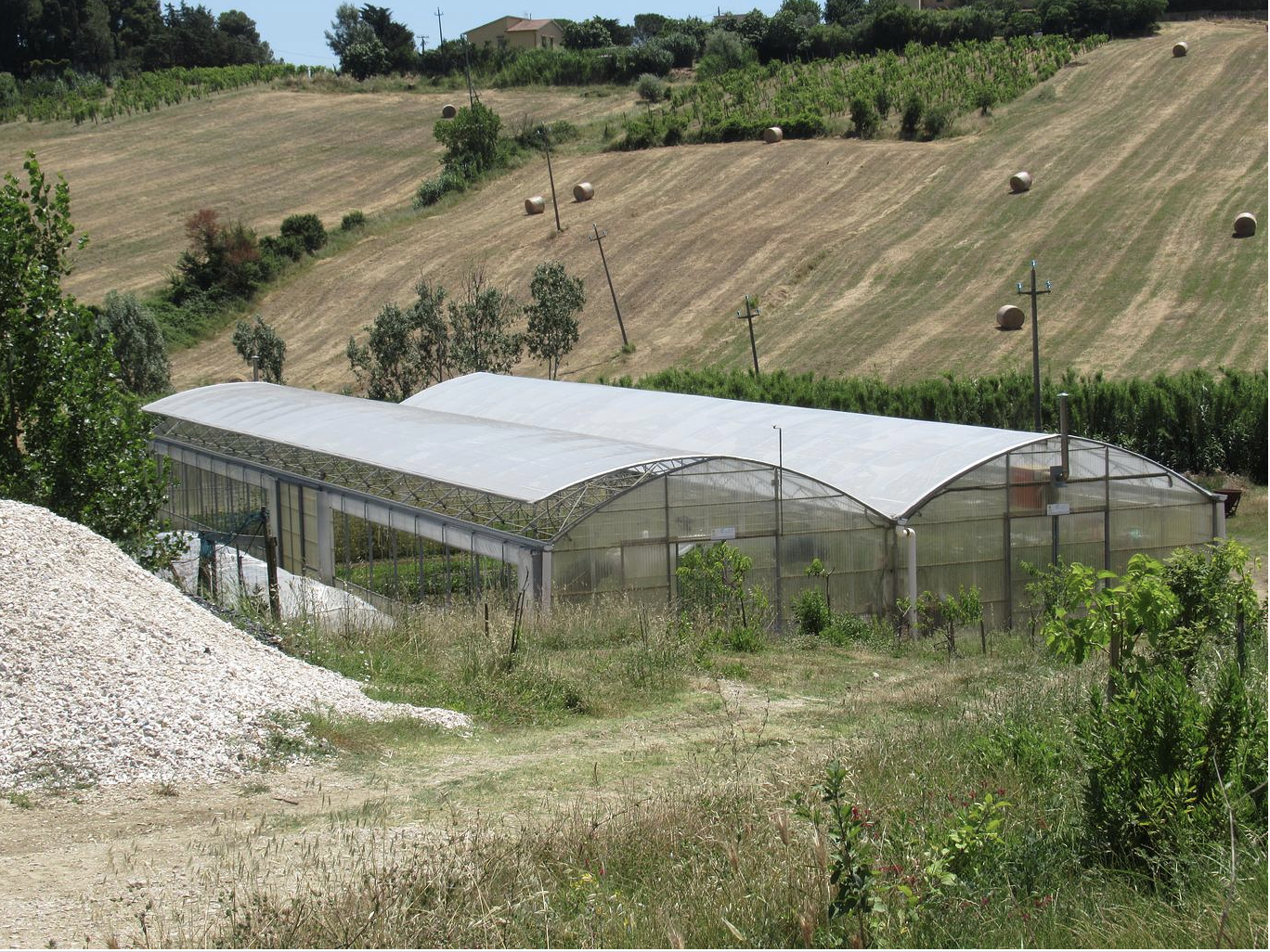Let’s talk about food!
Edited on
07 September 2022Bringing EU and local policies closer to each other.

URBACT has been a strong supporter of local and sustainable food production in cities. The programme backed-up the 2021 Glasgow Food Declaration, reinforcing the COP26 commitments of local authorities. This is merely an example of how URBACT cities are using international and European frameworks as enablers for local actions, to promote sustainable food systems.
At the same time, legislative frameworks can also be perceived as barriers by city-practitioners. European towns and cities need to learn to navigate initiatives such as the Farm to Fork Strategy, not to mention complex regulations related to public procurement. So how can they make the most of these rules and commitments, ensuring a positive transition towards more sustainable food systems? This was the issue explored by city representatives and experts at the recent 2022 URBACT City Festival session ‘Let’s talk about food: bringing EU and local policies closer to each other’. Read on for their answers…
From the international to the local context
 We need to act locally to reduce climate change through local food systems – as shown in a previous article ‘Cities nurturing local food systems to fight climate change’. The effects of the whole food supply chain on the environment, society and economy have implications for every aspect of our lives, might as be the climate, our health, the socio economics of our cities, city autonomy or rural areas’ survival. The Glasgow Food Declaration stresses the obviousness of the food-climate nexus for urgently transforming the “traditional” and most current way we produce, transport, eat and dispose of food worldwide. These effects have been very exposed during the Covid-19 pandemic. In addition, the current war in Ukraine has exacerbated tensions on intensive production and energy prices.
We need to act locally to reduce climate change through local food systems – as shown in a previous article ‘Cities nurturing local food systems to fight climate change’. The effects of the whole food supply chain on the environment, society and economy have implications for every aspect of our lives, might as be the climate, our health, the socio economics of our cities, city autonomy or rural areas’ survival. The Glasgow Food Declaration stresses the obviousness of the food-climate nexus for urgently transforming the “traditional” and most current way we produce, transport, eat and dispose of food worldwide. These effects have been very exposed during the Covid-19 pandemic. In addition, the current war in Ukraine has exacerbated tensions on intensive production and energy prices.
In parallel, the EU Farm to Fork Strategy is at the heart of the European Green Deal and it aims to make food systems fair, healthy and environmentally-friendly. As a strategy from the European Commission, this initiative will propose a legislative framework for sustainable food. While learning from the Covid-19 pandemic, the Commission will also develop a contingency plan for improving food supply and food security in the future. At the moment, the transition of the food system can be achieved using EU trade policies and international cooperation instruments.
Moreover, the EU Food 2030 research and innovation policy supports the transition of urban food systems. The FoodTrails project, for example, received strong support to roll out the Milan Urban Food Policy Pact’s across Europe. This pact stands for a collective commitment to integrated urban food policies, bringing measurable and long-term progress towards positive change. Last but not least, cities’ use of public procurement is bound by a Procurement Directive, controlled by DG GROW, which aims to support free market and competition, fairness and transparency.
We need to take the leap towards sustainable food systems
“There is a missing word in the name of the Farm to Fork Strategy. That is ‘sustainability’”, said Gilles Pérole, Deputy Mayor of Education for the city of Mouans-Sartoux (FR), father of Mouans-Sartoux’s sustainable food project and godfather of the URBACT Networks BIOCANTEENS #1 and #2, during the URBACT City Festival debate. Indeed, the panelists stressed the crucial importance of not reinforcing the food supply chain in itself based on mere economic and competitiveness values, but to rethink the meaningfulness of the whole system.
We need to adopt a holistic approach to make sense out of it, to actually improve it for the benefit of the entire society. In one single word, we need to make it sustainable. For this, cities need a clear vision and local commitment. Signing the Glasgow Food Declaration and joining the Milan Urban Food Policy Pact is a good place to start. They are both a symbolic and practical engagement to this cause.
Horizontal (across silos) and vertical (multi-level) integration
Yet somehow, “food policies are a way for cities to reach their climate and social ambition” said in the same occasion Anja de Cunto, Eurocities’ Project Coordinator and Policy Advisor for the topics of food and procurement[1]. “It is not something new but it requires coordination across many areas of work and across all levels of governance”, she added. As analysed in a previous article, an integrated ecosystem is paramount.
Landscape planning and rural-urban connection
Jorge Brito, Lead Partner of the URBACT Food Corridors network, is also the Intermunicipal Executive Secretary of the Region of Coimbra (Portugal), working with 19 municipalities. His region has a global vision that takes into account each city’s goals, local context and realities.
These realities change very quickly across the Region of Coimbra: from mountains to the seaside, through forest and countryside. As Jorge Brito explained at the URBACT City Festival, this is where a key challenge lies: “We need to reconnect ourselves, to get a broad sense of the landscapes in which we evolve: cities are totally disconnected from rural life and forgot the curial role of forest”. As such, the Region of Coimbra is addressing a wider framework for climate change, making the link between different functions of landscapes such as forestry and the food system.
For Andrea Patrucco, representing the Urban Innovative Actions OpenAgri project, the URBACT NextAgri network, FoodTrails, the Milan Urban Food Policy Pact, and the Milan Rural Metropolis, we need to increase the links with local farmers. He pointed out the distance of the Farm To Fork Strategy in this regard, “the reality of farmers does not correspond to what the Strategy seeks to promote. Indeed, as often, it seems both too vague but also too limiting”. As such, he adopts a bottom-up approach to make most out the strategy at local level, to ensure addressing to the best the needs of local farmers, for example in the Milano Metropoli Rurale Agreement (AQST).
The importance of canteens and healthy diets
 When talking about sustainable food system, Gilles Pérole, Andrea Patrucco, Jorge Brito and Anja de Cunto have always referred to the key roles of canteens to address a plurality of objectives. For of all of them, the canteens are enablers.
When talking about sustainable food system, Gilles Pérole, Andrea Patrucco, Jorge Brito and Anja de Cunto have always referred to the key roles of canteens to address a plurality of objectives. For of all of them, the canteens are enablers.
First of all, they can provide better quality food, and healthier diets, but only when there is political will and support to move in this direction. The canteens also reflect and respect the local conditions, as in the case of the Region of Coimbra, where the meals and recipes are adjusted, depending on the local cultural context (e.g. seaside vs. mountains).
Secondly, they are a safe space for the change of behaviour, with wider impacts on society like changing diets towards more plant-based meals. The city of Milan was able to push for more veggie options while changing its procurement procedures. At last, canteens promote the reduction of food waste – with direct consequences in terms of economic and environmental impacts, but also when it comes to changing the mindset of local people. The city of Mouans-Sartoux has developed a whole range of micro good practices in this regard.
Food exception in public procurement
Public procurement can be perceived as both a real and phantasmagoric hurdle to develop more sustainable food systems, due to both the restrictions of the procurement directive and the lack of knowledge, capacity and flexibility of local administrations. Mouans-Sartoux has sought to increase the potential of public procurement via a pre-assessment and market research, as well as division of its procurement in lots – ensuring that smaller local producers could actually answer the calls. The city also worked on the criteria to give a higher weight to the freshness criterion. In Milan, support to shorter food supply chain has been achieved through the Minimum Environmental Criteria (Ministry of the Environment Decree of 10 March 2020) in for the Green Public Procurement: it introduced priorities for public purchases of schools, universities, prisons, hospitals and public offices’ canteens for short supply chains and local food – zero kilometer – if it is produced organically.
Yet, as Gilles Pérole, explains and claims regularly, “we need a food exception, equivalent of a cultural exception, but in the food area”. Creating such an exception would open the door to reduce inequalities that are widening between territories, while also providing unprecedented flexibility. It would give a new chance to agricultural stakeholders who produce, process and develop foodstuffs that are in demand for inhabitants and decision-makers. As such, he is calling for a Food exception in Public Procurement, which all cities can sign. It is crucial to realise though, as Anja de Cunto stressed, that the current procurement framework does not enable such an exception.
Talking, sharing, demonstrating
In conclusion, to further work on the issue and public procurement, Anja de Cunto, highlighted that “it is the time to make the voice of cities heard to develop a future EU food system that is sustainable and guarantee quality food to everyone.” Cities should showcase and shout loud and clear what they are already doing – notably in terms of public procurement – and feed it into the EU policy making process. Exchanges and information sharing should be reinforced with the European Commission to show the opportunities and solutions that are already available. Groups of experts combining different governance levels should be set up. Reason why the work of the upcoming Urban Agenda Partnership on Food, in 2024, will be key.
It’s time to act!
You can...
☞ sign Un Plus Bio and Mouans Sartoux’ Opinion Column for a Food Exception in Public Procurement here.
☞ learn more about the best ways to use Public Procurement via the URBACT Online Training on Public Procurement available for free here.
☞ sign the Glasgow Food Declaration.
☞ check out the learnings from all Food-related URBACT networks on the Food Knowledge Hub.
And last, but not least, you can join the movement of European cities engaged for food sovereignty and food democracy during the first edition of the... Mouans-Sartoux Food Forum A table! on 26-28 September 2022.
Mouans-Sartoux Food Forum A table! on 26-28 September 2022.
In addition to visits of Mouans-Sartoux’s food project, debates, exchanges and workshops will be organised around the following three key topics:
- Building a European food sovereignty the protects people’s health and the planet
- 100 % organic school canteens across the EU: it is achievable!
- For a food exception in the EU's Public Procurement framework
[1] Eurocities is leading the work on the Big Buyers for climate and environment, leader for knowledge sharing and capacity building in the Horizon 2020 projects Food Trails representing cities interest in the development of the EU sustainable food legislation, part of the Farm to Fork Strategy.
 Submitted by Marcelline Bonneau on
Submitted by Marcelline Bonneau on





